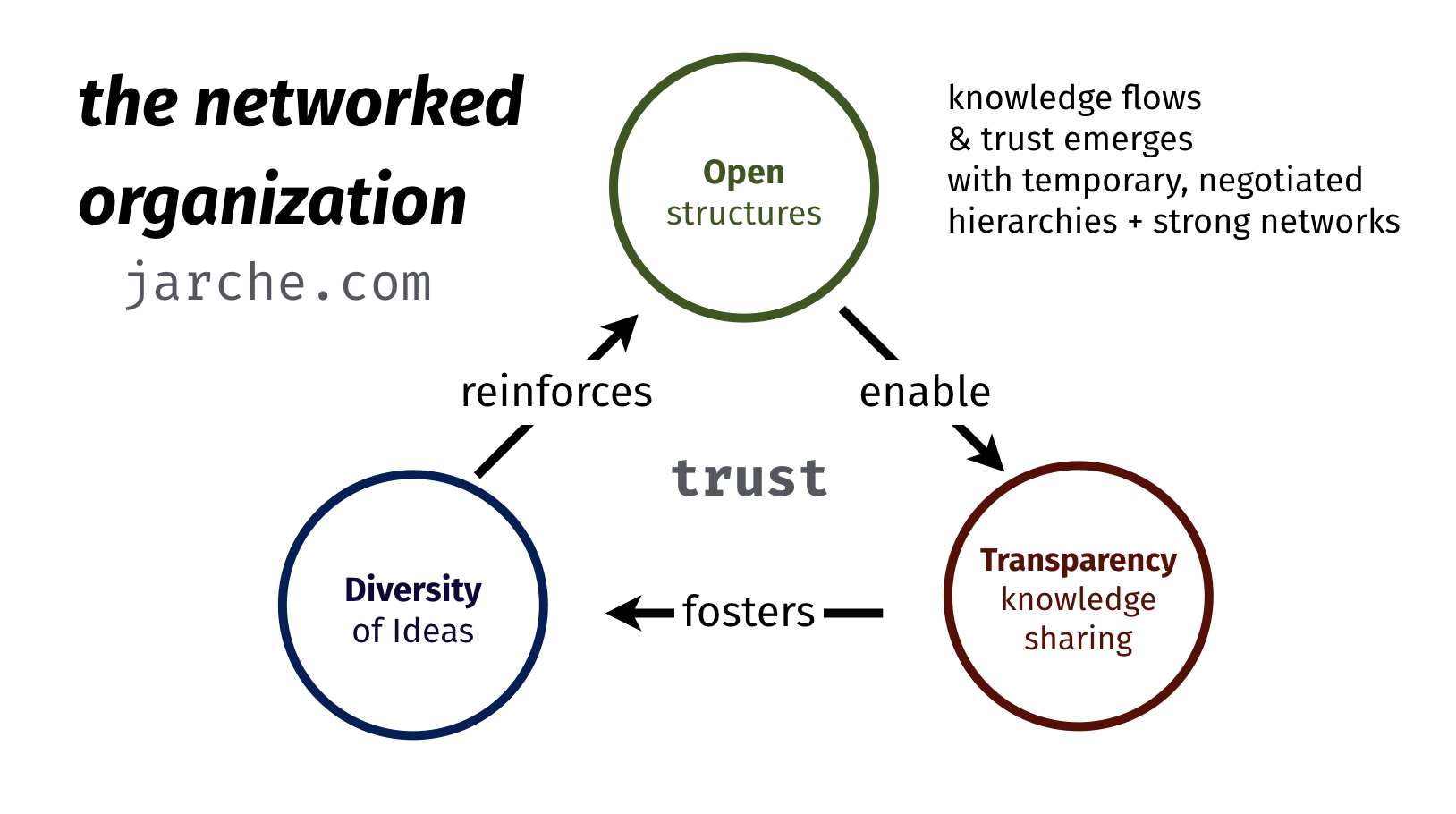Imagine a research-intensive organization where scientists should be sharing what they learn, and the official company policy is to share information and expertise among public and private partners. However, the company is ‘downsizing’ and layoffs are based on performance reviews. If one scientist helps a peer develop a patented product, and as a result the peer gets a better annual review, then the former may end up losing their job during the next round of layoffs. This was the situation I found myself in a decade ago.
Sharing knowledge was not a good personal strategy in this work environment even though it was official policy and was the focus of our project. We could not achieve our project objectives because systemic barriers pitted workers against each other in order to remain employed.
In this case, financial rewards for patents impeded learning, and in the end halted any knowledge sharing. In complex systems, the solutions are never simple, but our only hope is learning how to learn better and faster — individually, in teams, as an enterprise, and as a society. If we want to promote learning through knowledge sharing we should first look at what is blocking it.
Stan Garfield recently posted 16 reasons why people don’t share their knowledge. Of these 16 reasons most are due to a lack of information, tools, incentives, or motivation. These are systemic barriers to knowledge sharing. Only a few are due to a lack of skills or knowledge, which could be addressed through formal, informal, or social learning.

In my experience the core issue is trust, which Stan outlines in his second point.
2. They don’t trust others. They are worried that sharing their knowledge will allow other people to be rewarded without giving credit or something in return, or result in the misuse of that knowledge.
When trust is lost, knowledge fails to flow. When knowledge flow is stemmed, trust is lost. This happens in organizations. It also happens at a societal level. Networks of trust are what create value at all levels for human society.
“It is important to stress that we are all connected through a complicated net of trust. It is not as if there is a group of people, the non-experts, who have to trust the experts and the experts do not have to trust anyone. Everyone needs to trust others since human knowledge is a joint effort. The most poisonous effects of social media may not be the spread of disinformation per se but the undermining of trust that comes from anger and division. It is well known that low levels of trust in a society leads to corruption and conflict, but it is easy to forget the very central role that trust plays for knowledge. And knowledge, of course, is essential to the democratic society. As the historian Timothy Snyder has said, post-truth is pre-fascism.” —Why do we resist knowledge?
Openness enables transparency and knowledge-sharing, which fosters diversity of opinions, and these reinforce social networks. First we create open structures, more networked than hierarchical, with freedom to move across teams. Then we promote transparency by discouraging gatekeepers and identifying knowledge bottlenecks. This openness can encourage diversity of ideas and people. It is only over time that trust emerges. If knowledge sharing is the issue, take a good look at how the system is blocking it. Only then look at individual capabilities.

Originally published at Jarche.com
Harold Jarche works with individuals, organizations, and public policy influencers to develop practical ways to improve collaboration, knowledge sharing, and sensemaking.
PLEASE DONATE to help Network Weaver continue in it’s mission to offer free support and resources to networks worldwide.
Related Posts
November 4, 2024
Receiving Love and Care: A Liberatory Practice
June 21, 2024




